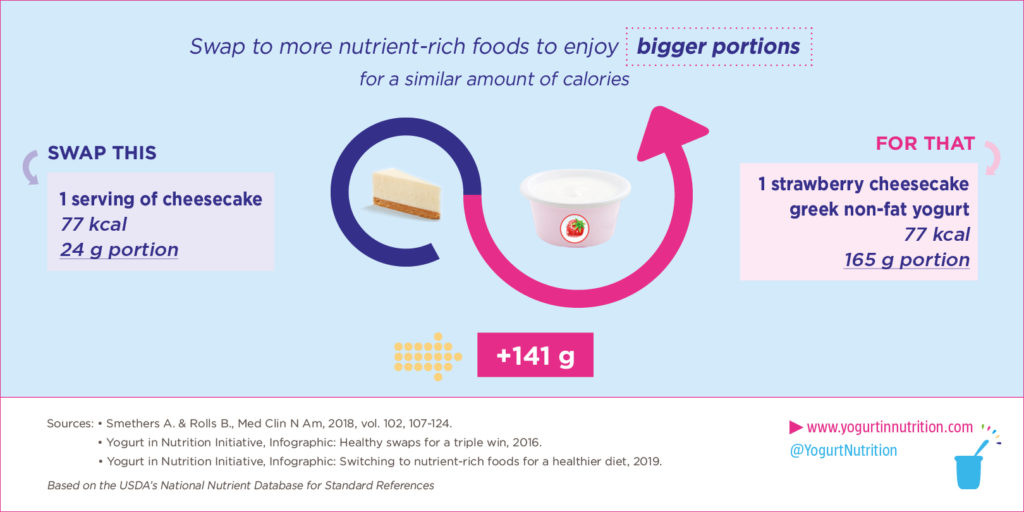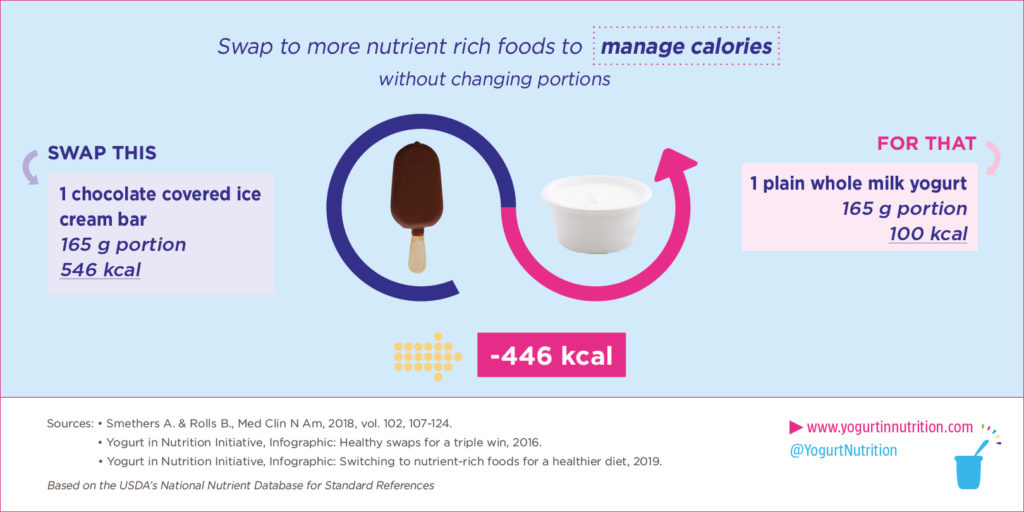In addition to all the other health benefits, the consumption of yogurt seems to help lose weight during a calorie-controlled diet. In fact, several scientific studies have shown that yogurt has a positive association with reduced body fat.
For example, in a study on 34 obese people, those who included three daily servings of fat-free yogurt as part of an energy-restricted diet lost 22% more body weight and 61% more body fat than those who were not eating yogurt [1]. Another study suggests that fortified yogurt (with whey protein, calcium, vitamin D, prebiotic fibers and probiotic cultures) lead to greater reductions of body fat and waist size and a less muscle loss than low-fat plain yogurt, for a similar loss of weight [2].
After dieting, it is very important to be stable, and yogurt consumption appears to protect against long-term weight gain. Indeed, a study on 120 877 healthy adults, followed-up for 12-20 years, showed that yogurt consumption is associated with less weight gain [3].
How does yogurt influence weight and body fat?
Calcium in yogurt, providing approximately 25% of the Daily Value for 1 cup, is a micronutrient that may affect fat by reducing its absorption from the intestine [4] and reducing fat storage in fat cells [5].
Live bacteria in yogurt and probiotics in fermented dairy may also influence weight by modulating gut microbiota. The mechanisms remain unclear, but researchers suggest some gut microbiota effects on fat digestion by reducing toxins in the gut and reducing the size of fat-storing cells [6, 7].
Finally, yogurt’s proteins may influence appetite-regulating hormones, increase satiety feeling and preserve muscle during weight loss.
In practice, you can make the swap to yogurt to save calories, get more nutrients and enjoy bigger portions.


References:
-
Zemel MB and al. Dairy augmentation of total and central fat loss in obese subjects. Int J Obes [Lond] 2005. 29:391–7.
-
Mohammadi-Sartang M and al. The effect of daily fortified yogurt consumption on weight loss in adults with metabolic syndrome: a 10-week randomized controlled trial. Nutr Metab Cardiovasc Dis. 2018. 28:565-574.
-
Mozaffarian D and al. Changes in diet and lifestyle and long-term weight gain in women and men. N. Engl. J Med. 2011. 364: 2392-404.
-
Christensen R and al. Effect of calcium from dairy and dietary supplements on faecal fat excretion: a meta-analysis of randomized controlled trials. Obes Rev. 2009. 10[4]:475-86.
-
Zemel MB. Role of calcium and dairy products in energy partitioning and weight management. Am J Clin Nutr. 2004. 79: 907S–912S0.
-
Kallus SJ and al. The intestinal microbiota and obesity. J Clin Gastroenterol. 2012. 46:16–24.
-
Jacques PF and al. Yogurt and weight management. Am J Clin Nutr. 2014. 99[5 Suppl]:1229S–34S.



